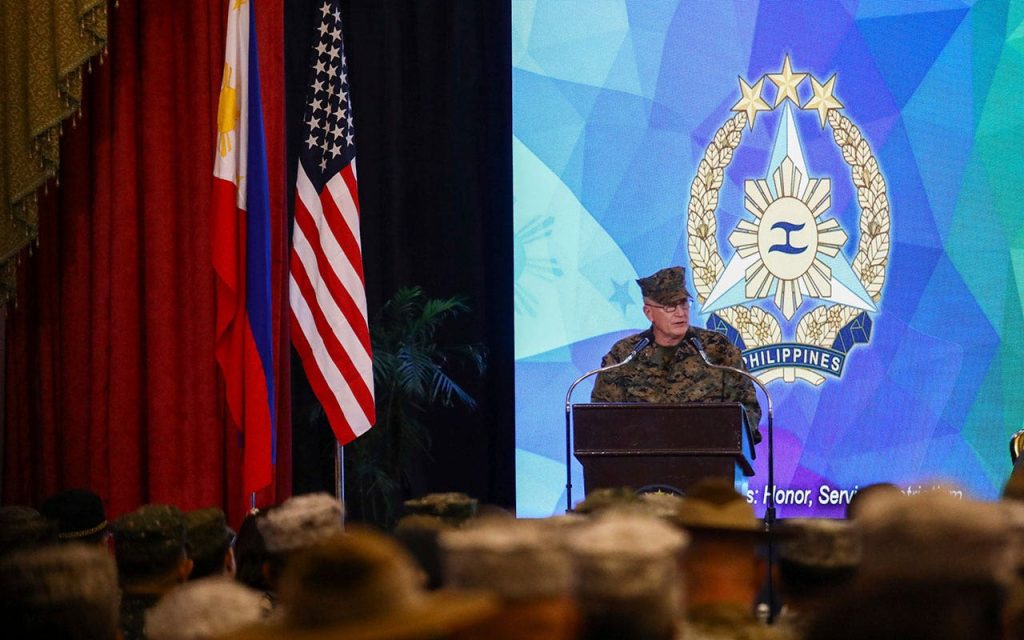France and the Philippines are beginning talks for a defense pact that would allow troops from each country to hold exercises in the other’s territory. This agreement comes as the Philippines currently has status-of-forces agreements with the United States and Australia, providing a legal framework for the entry of foreign forces into the country. The Philippines has been pursuing similar agreements with other countries, such as Japan and now France, as tensions with China in the South China Sea escalate. In addition to China and the Philippines, Vietnam, Malaysia, Brunei, and Taiwan are also involved in territorial disputes in the region.
French and Philippine officials are set to meet in Paris next month to discuss the visiting forces agreement. This move comes after the defense chiefs of both countries agreed in December to pursue such an accord. The talks will focus on the modalities of the agreement and are expected to begin officially in May. France has been increasing its security engagements with the Philippines, with a French navy ship joining U.S. and Philippine navy ships in the disputed South China Sea for combat-readiness exercises. France has reiterated its commitment to help maintain freedom of navigation and overflight in the region and to uphold the U.N. Convention on Law of the Sea.
China has criticized the exercises, accusing the Philippines of “ganging up” with countries from outside Asia and warning that the drills could instigate a confrontation and undermine regional stability. However, the Philippine military has dismissed these concerns, stating that the drills are aimed at boosting the country’s territorial defense and are not directed at any specific country. The ongoing disputes in the South China Sea have the potential to escalate into a major conflict, potentially involving the U.S. and China. France’s involvement in the region is seen as a way to support the Philippines and other allies in asserting their territorial claims.
The territorial disputes in the South China Sea have been long-running, with multiple countries claiming sovereignty over various islands and reefs in the region. The tensions have led to high seas skirmishes and collisions between Chinese and Philippine coast guard ships near disputed shoals, resulting in injuries to Philippine navy personnel. In addition to China, the Philippines, Vietnam, Malaysia, Brunei, and Taiwan are involved in these disputes, creating a potential flashpoint in Asia. The region is strategically important for trade and security, with the U.S. and China vying for influence in the area.
The defense pact between France and the Philippines is part of a broader effort to enhance security cooperation among countries in the region. By allowing troops to hold exercises in each other’s territories, the agreement aims to strengthen military ties and improve the ability of the countries involved to respond to security threats. France’s engagement in the South China Sea is seen as a way to support the Philippines in asserting its territorial rights and maintaining stability in the region. The talks between France and the Philippines mark a significant step in the ongoing efforts to address the complex security challenges in the Asia-Pacific region.
In conclusion, the upcoming defense pact between France and the Philippines represents a significant development in the evolving security landscape of the Asia-Pacific region. By expanding military cooperation and establishing a legal framework for troop exercises, the agreement aims to enhance the defense capabilities of both countries and contribute to regional stability. The territorial disputes in the South China Sea continue to be a source of tensions, with multiple countries asserting their claims in the strategic waterway. France’s involvement in the region reflects its commitment to upholding international law and promoting freedom of navigation, while also strengthening its ties with allies in the region. As talks begin next month, the focus will be on the modalities of the visiting forces agreement and the potential impact on regional security dynamics.















